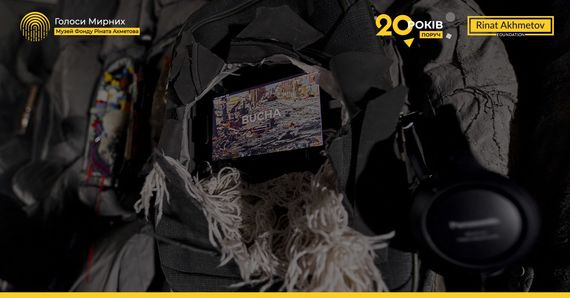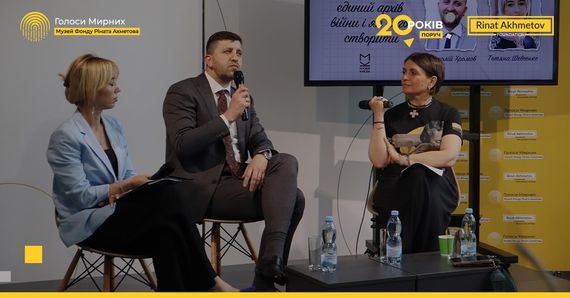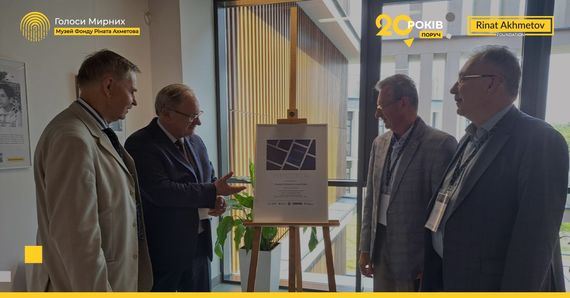“Memory Is Our Future”: An Interview with Scholar Anton Drobovych for the Rinat Akhmetov Foundation’s Museum of Civilian Voices

The Russia-Ukraine war, despite extensive documentation, risks becoming one of the most distorted. Scholar Anton Drobovych spoke about what should be done to avoid an undesirable scenario during a public event at the Museum of Civilian Voices by the Rinat Akhmetov Foundation.
Anton Drobovych is a scholar, public figure, and head of the Centre for Human Rights and War Memorialisation of the Kyiv School of Economics. The interview was moderated by Nataliia Yemchenko, Director of Communications at System Capital Management and member of the Supervisory Board of the Rinat Akhmetov Foundation.
The outlet Istorychna pravda [Historical Truth] released an abridged version of the conversation. You can read it here: https://www.istpravda.com.ua/articles/2025/06/19/165078/
You can watch the full version of the conversation here: https://www.youtube.com/watch?v=YDPzpylct6U
In Anton Drobovych’s opinion, there are many levels of recording the truth about the war today: from personal accounts to systemic projects. However, some initiatives that carry out documentation are being closed, while others are being repurposed. Therefore, it is important for society to understand what to do in this situation.
“The focus should be on what helps to survive and maintain effectiveness. This is about maximum solidarity and mutual support, including from the state. It is also important to consolidate state and non-state actors to create a framework for preserving information,” emphasises Anton Drobovych.
According to the scholar, the state will always retain documentation related to criminal prosecutions and damage registers. In the case of creating a depository or archive of the war, there are two possible scenarios: on a state basis with the involvement of civil society and other actors in partnership, and on a private basis, when the state is invited to cooperate.
“For now, both scenarios are equally viable. The question is who will be able to build the system, take responsibility, and ensure proper communication. Our future is at stake, as russia spends millions annually on propaganda and rewriting history,” says Anton Drobovych.
The public interviews take place within a series of events aimed at preserving the memory of the war. Currently, in the space of the Museum of Civilian Voices located at the Kyiv City History Museum, the documentation project “Diaries of the Civilians: Voices of those who survived and those who did not” is ongoing.
The Museum of Civilian Voices by the Rinat Akhmetov Foundation already contains over 130,000 stories about the war. This is the world’s largest collection of testimonies from civilians affected by russia’s war against Ukraine. Share your story on the Museum’s portal https://civilvoicesmuseum.org/ or via the free hotline 0800509001.



